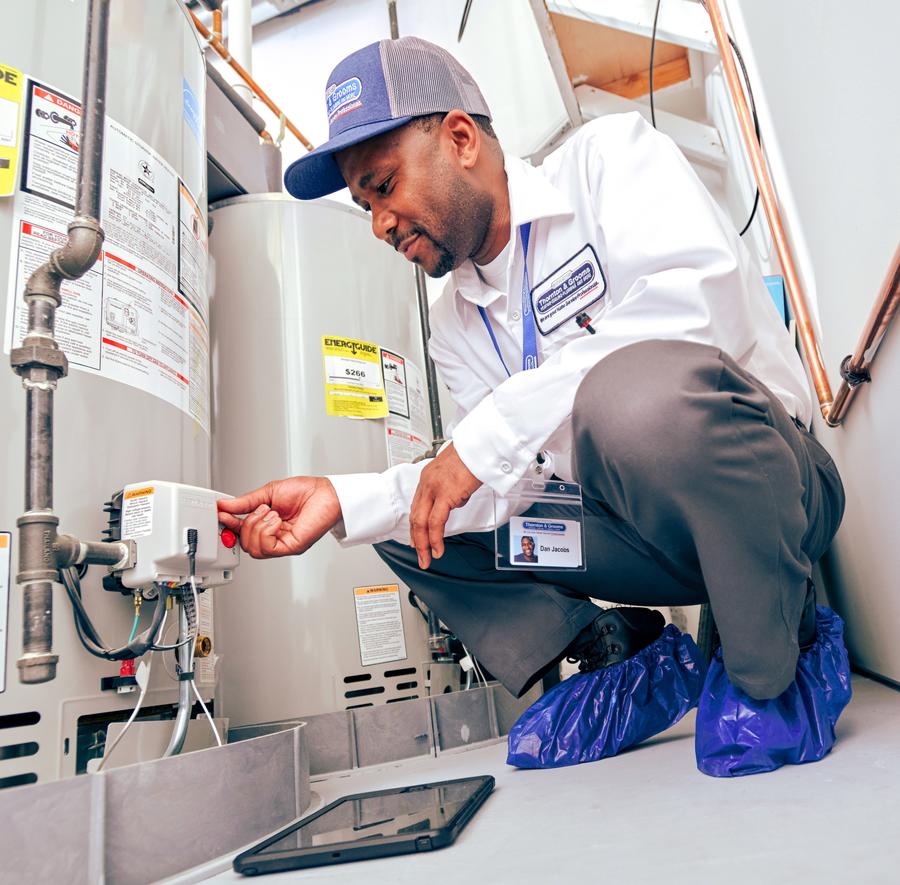What’s Causing Your Water Heater Smell and How To Fix It
Experiencing a foul smell, like rotten eggs, emanating from your water can be pretty off-putting, affecting everything from cooking to showering. Often, this odor is attributed to hard water, which, while not harmful for consumption, can lead to additional strain on your plumbing and an unpleasant sensory experience. Beyond sulfurous smells, various other odors can arise from your water heater.
In this article, we delve into the aspects influencing your water's scent, covering areas such as:
- Identifying different types of water heater smells
- Common causes of water heater odors
- DIY solutions for eliminating water heater smells
- When to seek professional help for persistent smells
- Preventive maintenance to avoid water heater odors
Specifically, if the odor is coming from your hot water, your water heater tank is likely the source. We’ll guide you through diagnosing the issue and finding practical solutions to restore freshness to your water supply.
Eliminate Unpleasant Hot Water Odors with Expert Assistance
Are you struggling with foul odors in your hot water? Thornton & Grooms is here to resolve your water heater issues fast. Our transparent pricing and 100% satisfaction guarantee ensure your water returns to a clean and odorless state before we consider the job done.
Identifying Different Types of Water Heater Smells

A rotten egg smell from your hot water often indicates hydrogen sulfide gas. This could be due to a deteriorating sacrificial anode rod in your water heater tank, which is designed to corrode and protect the tank.
However, not all unpleasant odors originate from the water heater. Musty or moldy smells typically suggest bacterial growth within the water supply itself. Chemical odors, like bleach, may arise from water treatment processes, while an oily scent could signal a chemical spill affecting the water supply or the presence of iron bacteria. The rotten egg and certain chemical smells are usually confined to issues within the hot water tank.
Common Causes of Water Heater Odors
The primary offender for the rotten egg odor is sulfate-reducing bacteria, thriving in conditions where the water heater's temperature is consistently low, or the unit remains unused for extended periods. This scenario is common in infrequently used spaces, such as a guest apartment with its own water heater, leading to bacterial buildup. Additionally, the sacrificial anode rod, when corroding, can emit a foul odor, contributing to the distinctive rotten egg smell in your hot water.
DIY Solutions for Eliminating Water Heater Smells
An easy method to eliminate odors from your water heater includes adding bleach to the water tank, letting it sit for around 30 minutes, and emptying the tank. Adding bleach creates an environment that's less hospitable to bacteria, and after a few cycles of filling and emptying, the odor should be gone. It's also a good idea to check your water heater temperature settings and increase them if the temperature is too low.
When to Seek Professional Help for Persistent Smells
If DIY solutions don't work, it's time to seek help from a professional plumber. At Thornton & Grooms, we can help you find the source of the odor and eliminate it permanently. Bleach may temporarily reduce odors, but if you notice the smell starting to come back after just a week or two, you likely have an issue that DIY solutions won't solve.
Preventive Maintenance to Avoid Water Heater Odors

Scheduling regular water heater maintenance, including an annual tank flush, is a key strategy to prevent unpleasant odors. A water heater tune-up mitigates the sacrificial anode rod's degradation and removes sediment and bacteria that contribute to foul smells. Consistent water heater maintenance benefits include enhanced efficiency, prolonged equipment lifespan, and improved water quality.
During a maintenance session, Thornton & Grooms technicians will thoroughly inspect your tank to pinpoint potential issues early on. If they discover a deteriorating anode rod or other components that could result in odor problems, they will alert you promptly, allowing for timely repairs or replacements. This proactive approach ensures your water heater remains in optimal condition, safeguarding your home against the inconvenience of smelly water.
Tired of smelly water during your shower? Contact Thornton & Grooms!
At Thornton & Grooms, our plumbing team has over 35 years of experience delivering clean, clear, safe hot water. We'll handle your home water heater repair within 24 hours.
- Tagged:
- Troubleshooting
